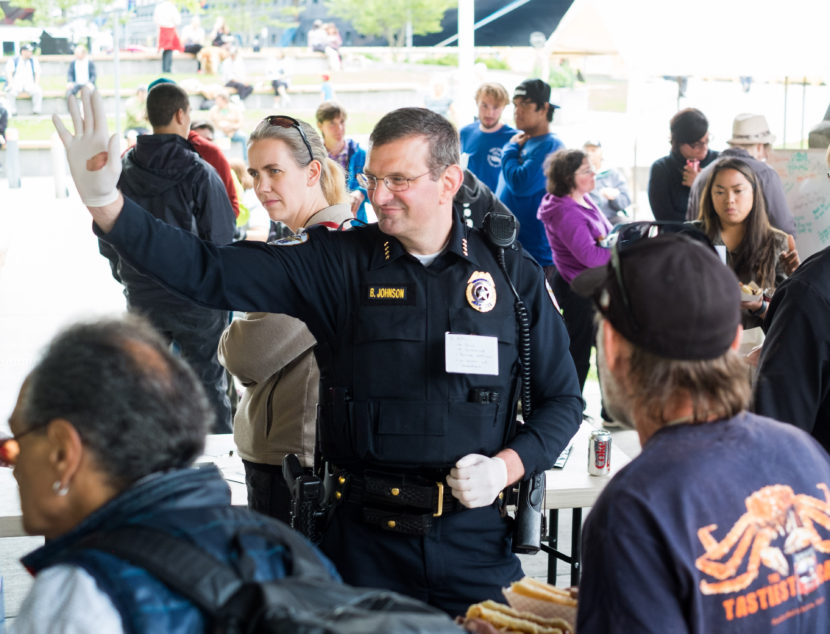
Juneau police released some additional demographic details on the 38 people they reported using force on in 2019.
The department believes most of them were white men. But that data comes with significant limitations, because police in Juneau don’t ask people their race when responding to calls.
Deputy Chief David Campbell told the Juneau Assembly last week that, in an effort to avoid racial profiling, officers stopped asking people for their race in 2016. Officers will document race if someone discloses it, or they can sometimes pull data about a person’s race from other places — like the DMV database.
“But if that isn’t there, then the officer needs to take their best guess as to what race the person is and if they’re not sure, then they write down as ‘other’.” Campbell said.
In a later interview, Campbell said Juneau Police are open to talking about that policy with the community. He acknowledged that it does limit the department’s ability to track who officers are using force on.
“Maybe one of the benefits that might come out of this is maybe during this conversation, we’ll be able to say — you know it might offend someone in the field, but it’s ok for an officer to ask someone their race. Because this is a really important issue, you know? So maybe that directive will change because of all of this,” he said.
Campbell said he’s looking forward to a community conversation about policing.
He said Juneau has something that a lot of other communities don’t: officers who work here have to live here too.
He pointed to a policing report done under the Obama administration. In it residents of Ferguson, Missouri, said they considered the police an occupying force.
“My god, that is horrible,” Campbell said. “But when you live in the same community that you police and you see people at Costco and at church and playing volleyball and just out and about, you know we’re neighbors. We’re held accountable.”
Residents of Juneau have been reaching out to the police department, the city and the Assembly with questions about how the community is policed. There will be a listening session on June 17 to hear those questions on policing, racism and social justice. The Juneau Police Department leadership, school district superintendent and school board have been invited to hear community members weigh-in.
The City and Borough of Juneau has step-by-step instructions for how to give public comment at the meeting which can be found here.
Additionally, the Juneau Assembly and city police will continue the discussion during a committee of the whole meeting on June 22 at 6 p.m. Questions can be sent to boroughassembly@juneau.org.
Editor’s note: A previous version of this story listed an incorrect date for the listening session — it is June 17. Additionally, it has been corrected to reflect that the purpose of the listening session is for community members to weigh-in, not for police and school district officials to answer questions.
